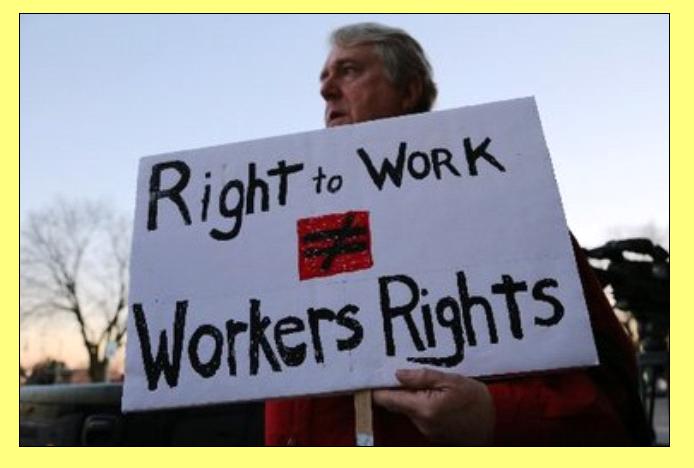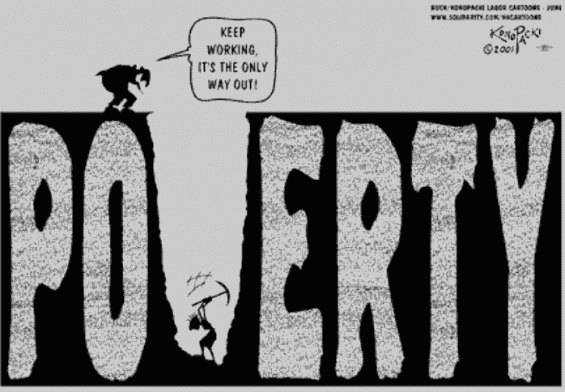Have you ever been curious about right to work laws, how they work, and what they entail in the United States? The answers to these questions may surprise you. Many people automatically think it’s a law that helps them get or keep a job, but that’s not the case. In the United States, right to work laws have a direct impact on whether workers can be required to join a union or pay union dues as a condition of employment. An understanding of right to work laws is crucial for anyone researching their local employment laws, since these laws play a huge role in determining your rights and obligations in the workplace.
What Are Right to Work Laws?
Right to work laws give employees the right to decide whether to join a union and, more importantly, whether to pay union dues. In states without these laws, employees in unionized workplaces might have to pay dues regardless of their membership status, while right to work states make this a voluntary decision.
Most people see these laws as a form of worker freedom, allowing individuals to choose if they want to financially support a union. That being said, right to work laws go a bit deeper than just individual choice, since they can impact the power dynamics between employers, employees, and unions.
The History and Evolution of Right to Work Laws
Right to work laws originated with the National Labor Relations Act (NLRA) of 1935, commonly known as the Wagner Act. This law gave workers the right to form unions and engage in collective bargaining. However, it also made union membership mandatory as a condition of employment in unionized workplaces, so employees needed to pay union dues even if they weren’t in the union.
A little more than a decade later, many thought the Wagner Act needed to be reined in a little bit, so the Taft-Hartley Act was passed in 1947. This gave individual states the power to mandate right to work laws, effectively prohibiting mandatory union membership and dues payments as a condition of employment. Since then, 27 states have adopted right to work laws, with each state adapting the laws to its specific needs and political climate.
Right to work laws are still a contentious issue these days, and there are currently proposals at the federal level seeking to expand or limit these laws nationwide. For example, the National Right to Work Act, introduced in 2023, would give employees the choice of paying dues to or joining a union at the federal level.
States with Right to Work Laws
As of 2024, 27 states have right to work laws. These states include Alabama, Arizona, Arkansas, Kansas, Florida, Georgia, Idaho, Indiana, Iowa, Kentucky, Louisiana, Michigan, Mississippi, Nebraska, Nevada, North Carolina, North Dakota, Oklahoma, South Carolina, South Dakota, Tennessee, Texas, Utah, Virginia, West Virginia, Wisconsin, and Wyoming.
It’s interesting to see the impact of geography and the political climates in different regions have on whether a state has right to work laws. Many of these laws are more common in the South and Midwest, where there’s been a history of less union influence compared to the Northeast and West Coast. States that have these laws often make the argument that they make the state more friendly to businesses, which attracts companies and boosts employment.
Arguments For and Against Right to Work Laws
Of course, there’s pretty significant debate around right to work laws, and both sides have strong arguments.
Proponents of right to work laws argue that these laws give workers more freedom by letting choose whether to join and financially support a union. They state that right to work laws bring businesses to states by making labor disputes and strikes less likely, since they can disrupt business operations. Supporters also claim that these laws contribute to higher employment rates and greater economic growth in right to work states.
Critics, on the other hand, argue that right to work laws make unions weaker, leading to lower wages and reduced benefits for workers. They point out that unions still need to represent all employees in a workplace, even those who aren’t paying dues, which stretches their resources and diminishes their effectiveness. Opponents are also concerned that right to work laws contribute to economic inequality and erode workplace safety standards, since weaker unions may find it harder to enforce labor protections.
Impact of Right to Work Laws on Employment and Wages
Right to work laws have various, complex impacts on employment and wages, and they tend to vary by region. Studies have shown that states with right to work laws tend to have higher employment rates, especially in manufacturing and other industries that are more sensitive to labor costs. Supporters of right to work laws often cite these studies as evidence they create jobs and economic growth.
However, the same studies conclude that wages in right to work states are generally lower than in states without these laws. Critics of right to work laws use this evidence to argue that they disproportionately benefit employers and executives at the expense of workers. Additionally, the decline in union membership associated with right to work laws can weaken the union’s collective bargaining power, making the wage gaps and worker benefit limitations worse.
Navigating Right to Work Laws
Right to work laws directly affect the relationship between workers, employers, and unions. If you’re researching local employment laws, an understanding of the implications of right to work laws is essential. These laws can influence everything from your ability to join a union to the wages and benefits you receive. As debates over the future of right to work laws continue, staying on top of these issues will help you make the best choices for your career and financial stability.
Whether you live in a state with right to work laws or are considering moving to one, it’s important to understand how these laws might impact your employment. As with any legal matter, staying informed and seeking professional advice from an employment lawyer NJ when needed is the best way to protect your rights and make sure you’re treated fairly in your workplace.




